Retailers should respond to a growing demand for wholegrain and other healthier cereals, writes Rich Airey
If market analysts' crystal balls prove accurate, the breakfast cereal market should hold real profit potential for retailers. Given current industry predictions, Mintel forecasts the category will grow by an estimated 17% to reach a value of more than £1.3bn by 2010.
Weetabix remains the top-selling ready-to-eat cereal, followed by Kellogg's Cornflakes, Crunchy Nut Cornflakes and Special K, while Nestlé's Shreddies takes fifth spot (TNS Worldpanel November 2006).
Health has remained one of the key growth drivers. And while there has always been a perception that many cereals are generically healthy, manufacturers have been forced to respond to a growing demand for healthier products as well as red tape surrounding Guideline Daily Amounts. They'll also have to contend with new rules on advertising to children.
"Health and taste have been key to growth in 2006 and will continue to be so in 2007," says Nestlé cereals category director Graeme Foster. "The key is to offer shoppers a good variety of healthy, tasty brand-leading products.
"In the ready-to-eat market, the top 20 brands contribute 43% of total sales. If retailers stock these, as well as a hot oats and a traditional porridge oats product, they will be well on their way to satisfying shoppers' needs."
Nestlé enjoyed considerable growth of its Cheerios brand in 2006. The original variant now has a 2.45% share of the market while the honey nut flavour has a share of about 1% and growing. Foster believes the company is well placed to benefit from the health trend with its range of branded cereals that all contain wholegrain. He also believes the coming months will see mainstream cereals such as Shreddies and Shredded Wheat continuing to perform well across smaller fixtures.
Foster recommends careful planning when it comes to merchandising the category: "There should be room on the fixture to double up facings of the best-sellers, Weetabix and Cornflakes. New products can also be taken from time to time to add variety."
Weetabix bosses have hailed 2006 as a fantastic year for the brand. As well as retaining its position as the number-one ready-to-eat cereal, it also tasted significant success with the launch of Oatibix. The standard 24-pack and Oatibix bite-size sultana & apple have between them already grabbed 2% of the total ready-to-eat market.
Meanwhile, original Weetabix holds an 11% share of the convenience market, making it an obvious must-stock. Weetabix marketing controller Tony Corp points to a some key trends retailers should look out for in the months ahead. "Factors like wholegrain and heart health will continue to drive growth, as will oats, both as a hot and cold breakfast option," he says. "Another trend to continue is the growth in functional foods. This year we have already seen a move towards breakfast products with an added prebiotic to aid digestion."
Corp adds: "Increasingly, consumers are demanding to know more about the food they buy, favouring products that can demonstrate traceability and a locality. Breakfast cereals will be no different to any other sector."
Kellogg's UK communications manager Louis Hill agrees that the health issue is increasingly high on shoppers' agendas and that significant opportunities remain for retailers, despite the fact that the category itself is already a highly saturated market.
"Most people are used to eating cereal, so the category has a very high penetration," he says. "However, this highlights how important the category is for retailers. Shoppers expect to find a good selection of cereals in a c-store.
"Our focus is to keep breakfast at the forefront of shoppers' minds and health has remained the main driver of growth. We have seen strong performances from products including Special K and Optivita, which we will promote further this year. Taste is also a big factor, so cereals such as Coco Pops are also still very popular. Other products such as new Honey Cornflakes and Chocolate Wheats rely on taste as their selling point."
Hill adds: "It's important c-store retailers know their customers and select the best-selling big brand products. They should look at new areas being developed and stock a few extras to create additional interest. Breadth of range is important, but for retailers with limited space it's worthwhile checking products are not being duplicated."
Jordans convenience category director Nicola Day points to the continued growth of luxury adult products as well as healthy ones. "More indulgent cereals have continued to rise in popularity," she explains. "There's also a continued interest from consumers in the provenance of their foods. As a consequence, they look to add premium products."
Day believes must-stock Jordans products for c-stores are country crisp strawberry, special muesli and raisin & almond crunchy. She believes the main opportunity for retailers is range optimisation and adds: "They should stock the major products and then specifically tailor other products to the profile of their own store. Many smaller retailers stock a range of brands without giving much thought as to why consumers would want to buy them. The problem this can pose is that they tend to be products that directly compete with each other.
It is far better to offer a broader range of products that meet the consumer requirements on a much wider level."
Although growing from a relatively small base, the rise of hot cereals cannot be ignored. The category is up 7% in value this year. PepsiCo's Quaker brand is playing a major role in the category's success, experiencing value growth of 14% (AC Nielsen, October 2006).
PepsiCo trade marketing manager Sam Underhay says: "Consumers are becoming increasingly aware of the benefits of eating oats. Healthier options and food made from natural, wholesome ingredients look set to remain a priority for consumers.
"Retailers with limited space should ensure they stock Quaker Oats standard 1kg to cater for those who want a more traditional hot cereal, along with Oatso Simple Original and Oatso Simple golden syrup - the two best-selling instant cereals (AC Nielsen)."
One company proud of its traditional roots, having been milling oats since 1675, is Mornflake. The brand enjoyed a significant boost to its share of the market in 2006, growing by 25% in value.
National account sales manager Alan Cullom says: "Oats have become a key sector within the breakfast cereals market and it's essential that retailers include them.
"We have a whole host of new products launching later in 2007 that we guarantee will stimulate the market and continue to create great sales for retailers."
But trading manager at Musgrave Budgens Londis, Shaun Quinton, has some words of advice for suppliers hoping to win over c-store retailers: focus on real innovation and all sectors of the industry. Says Quinton: "We've seen more innovation during the past 12 months than in the past few years. But there have been a few too many brand extensions rather than genuine innovation.
"I'd like to see suppliers continuing to focus on consumer health awareness. They should also keep their minds on case sizes. They are often driven by the demands of the multiples but with the c-store sector taking an increasing market share, this is where suppliers should be focusing their attention."
If market analysts' crystal balls prove accurate, the breakfast cereal market should hold real profit potential for retailers. Given current industry predictions, Mintel forecasts the category will grow by an estimated 17% to reach a value of more than £1.3bn by 2010.
Weetabix remains the top-selling ready-to-eat cereal, followed by Kellogg's Cornflakes, Crunchy Nut Cornflakes and Special K, while Nestlé's Shreddies takes fifth spot (TNS Worldpanel November 2006).
Health has remained one of the key growth drivers. And while there has always been a perception that many cereals are generically healthy, manufacturers have been forced to respond to a growing demand for healthier products as well as red tape surrounding Guideline Daily Amounts. They'll also have to contend with new rules on advertising to children.
"Health and taste have been key to growth in 2006 and will continue to be so in 2007," says Nestlé cereals category director Graeme Foster. "The key is to offer shoppers a good variety of healthy, tasty brand-leading products.
"In the ready-to-eat market, the top 20 brands contribute 43% of total sales. If retailers stock these, as well as a hot oats and a traditional porridge oats product, they will be well on their way to satisfying shoppers' needs."
Nestlé enjoyed considerable growth of its Cheerios brand in 2006. The original variant now has a 2.45% share of the market while the honey nut flavour has a share of about 1% and growing. Foster believes the company is well placed to benefit from the health trend with its range of branded cereals that all contain wholegrain. He also believes the coming months will see mainstream cereals such as Shreddies and Shredded Wheat continuing to perform well across smaller fixtures.
Foster recommends careful planning when it comes to merchandising the category: "There should be room on the fixture to double up facings of the best-sellers, Weetabix and Cornflakes. New products can also be taken from time to time to add variety."
Weetabix bosses have hailed 2006 as a fantastic year for the brand. As well as retaining its position as the number-one ready-to-eat cereal, it also tasted significant success with the launch of Oatibix. The standard 24-pack and Oatibix bite-size sultana & apple have between them already grabbed 2% of the total ready-to-eat market.
Meanwhile, original Weetabix holds an 11% share of the convenience market, making it an obvious must-stock. Weetabix marketing controller Tony Corp points to a some key trends retailers should look out for in the months ahead. "Factors like wholegrain and heart health will continue to drive growth, as will oats, both as a hot and cold breakfast option," he says. "Another trend to continue is the growth in functional foods. This year we have already seen a move towards breakfast products with an added prebiotic to aid digestion."
Corp adds: "Increasingly, consumers are demanding to know more about the food they buy, favouring products that can demonstrate traceability and a locality. Breakfast cereals will be no different to any other sector."
Kellogg's UK communications manager Louis Hill agrees that the health issue is increasingly high on shoppers' agendas and that significant opportunities remain for retailers, despite the fact that the category itself is already a highly saturated market.
"Most people are used to eating cereal, so the category has a very high penetration," he says. "However, this highlights how important the category is for retailers. Shoppers expect to find a good selection of cereals in a c-store.
"Our focus is to keep breakfast at the forefront of shoppers' minds and health has remained the main driver of growth. We have seen strong performances from products including Special K and Optivita, which we will promote further this year. Taste is also a big factor, so cereals such as Coco Pops are also still very popular. Other products such as new Honey Cornflakes and Chocolate Wheats rely on taste as their selling point."
Hill adds: "It's important c-store retailers know their customers and select the best-selling big brand products. They should look at new areas being developed and stock a few extras to create additional interest. Breadth of range is important, but for retailers with limited space it's worthwhile checking products are not being duplicated."
Jordans convenience category director Nicola Day points to the continued growth of luxury adult products as well as healthy ones. "More indulgent cereals have continued to rise in popularity," she explains. "There's also a continued interest from consumers in the provenance of their foods. As a consequence, they look to add premium products."
Day believes must-stock Jordans products for c-stores are country crisp strawberry, special muesli and raisin & almond crunchy. She believes the main opportunity for retailers is range optimisation and adds: "They should stock the major products and then specifically tailor other products to the profile of their own store. Many smaller retailers stock a range of brands without giving much thought as to why consumers would want to buy them. The problem this can pose is that they tend to be products that directly compete with each other.
It is far better to offer a broader range of products that meet the consumer requirements on a much wider level."
Although growing from a relatively small base, the rise of hot cereals cannot be ignored. The category is up 7% in value this year. PepsiCo's Quaker brand is playing a major role in the category's success, experiencing value growth of 14% (AC Nielsen, October 2006).
PepsiCo trade marketing manager Sam Underhay says: "Consumers are becoming increasingly aware of the benefits of eating oats. Healthier options and food made from natural, wholesome ingredients look set to remain a priority for consumers.
"Retailers with limited space should ensure they stock Quaker Oats standard 1kg to cater for those who want a more traditional hot cereal, along with Oatso Simple Original and Oatso Simple golden syrup - the two best-selling instant cereals (AC Nielsen)."
One company proud of its traditional roots, having been milling oats since 1675, is Mornflake. The brand enjoyed a significant boost to its share of the market in 2006, growing by 25% in value.
National account sales manager Alan Cullom says: "Oats have become a key sector within the breakfast cereals market and it's essential that retailers include them.
"We have a whole host of new products launching later in 2007 that we guarantee will stimulate the market and continue to create great sales for retailers."
But trading manager at Musgrave Budgens Londis, Shaun Quinton, has some words of advice for suppliers hoping to win over c-store retailers: focus on real innovation and all sectors of the industry. Says Quinton: "We've seen more innovation during the past 12 months than in the past few years. But there have been a few too many brand extensions rather than genuine innovation.
"I'd like to see suppliers continuing to focus on consumer health awareness. They should also keep their minds on case sizes. They are often driven by the demands of the multiples but with the c-store sector taking an increasing market share, this is where suppliers should be focusing their attention."


















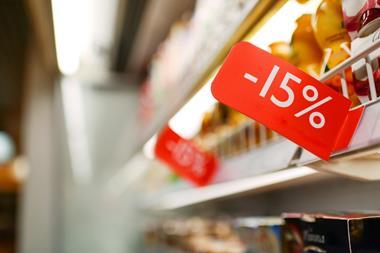
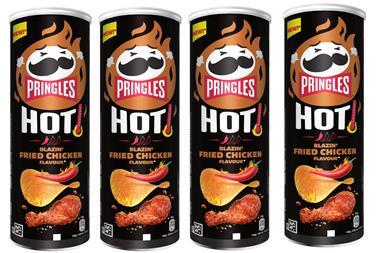

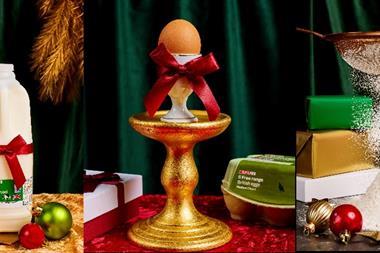

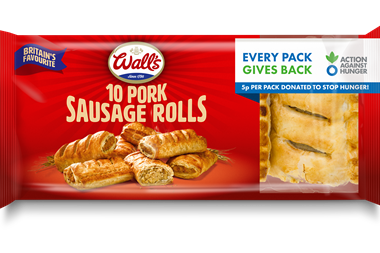
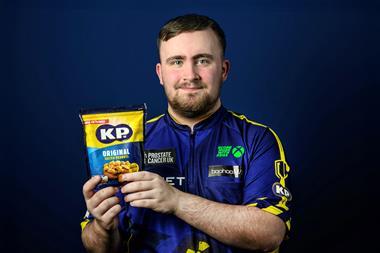
No comments yet